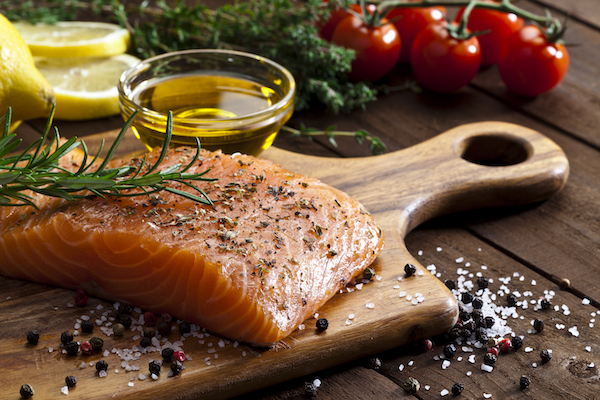For those looking to expand their dietary options, the pescatarian diet offers a unique approach. Whether you are transitioning from a meat-based diet or seeking more variety as a vegetarian, incorporating fish and seafood can provide numerous health benefits for your heart, brain, and overall well-being.
Let’s explore what a pescatarian diet entails and why it may be the right choice for you.
Understanding the Pescatarian Diet

A pescatarian diet primarily consists of plant-based foods with the addition of fish and seafood. While some pescatarians also include dairy and eggs in their meals, others opt for a more plant-focused approach.
Jenn Cassetta, a certified nutritionist, highlights that most pescatarians incorporate fish or seafood a few times a week alongside vegetarian meals.
Advantages of Embracing a Pescatarian Diet
Monika Jacobson, a registered dietitian, emphasizes the following benefits of a pescatarian diet:
1. Enhanced Brain and Heart Health
Fatty fish like salmon and mackerel are rich in omega-3 fatty acids, known for their positive impact on cardiovascular and cognitive health.
2. Weight Management Support
Pairing seafood with a nutritious diet can aid in weight loss, especially when combined with fruits, vegetables, healthy fats, and whole grains.
3. Lean Protein Source
Seafood offers a high protein content with fewer calories and saturated fats compared to other meat sources, making it a suitable option for meeting protein needs.
4. Environmental Sustainability
Opting for a pescatarian diet can contribute to sustainability efforts, as fishing generally has a lower carbon footprint than animal farming.
Considerations for a Pescatarian Diet

Nutritional Balance
While a well-planned pescatarian diet can offer health benefits, it is essential to avoid processed and fried foods. Opt for grilled, baked, or poached seafood alongside plant-based proteins like beans, nuts, and seeds for a balanced approach.
Ha Nguyen, a registered dietitian, warns against unhealthy dietary choices on a pescatarian diet, emphasizing the importance of whole foods and nutrient-rich options.
Mercury Content
Despite concerns about mercury levels in fish, it is possible to minimize exposure by selecting low-mercury options such as shrimp, salmon, and pollock. Avoid consuming high-mercury fish like swordfish and shark frequently.
Quality Selection
When choosing seafood, prioritize wild-caught fish over farm-raised varieties for better quality and nutritional content. Opt for fresh or frozen seafood from reputable sources to ensure optimal freshness and taste.
Getting Started with a Pescatarian Diet
If you are eager to explore the pescatarian diet, consider incorporating seafood into your meals gradually. Start by replacing meat with fish in your favorite recipes or try new seafood dishes a few times a week.
Meal prep can simplify the transition to a pescatarian diet. Prepare fresh seafood at the beginning of the week and keep frozen options on hand for convenience. Experiment with different seafood varieties and explore recipes that align with your taste preferences.
Transitioning to a pescatarian lifestyle can be a seamless process, especially for vegetarians looking to introduce seafood into their diet gradually. By incorporating a diverse range of plant-based foods and seafood options, you can enjoy the health benefits of a pescatarian diet while savoring delicious and nutritious meals.

